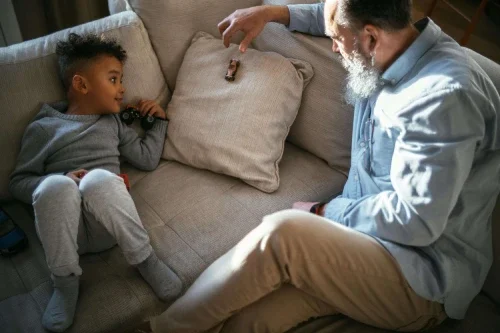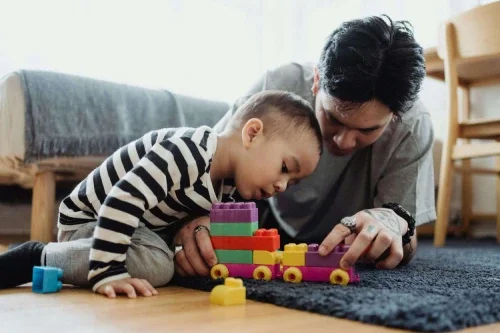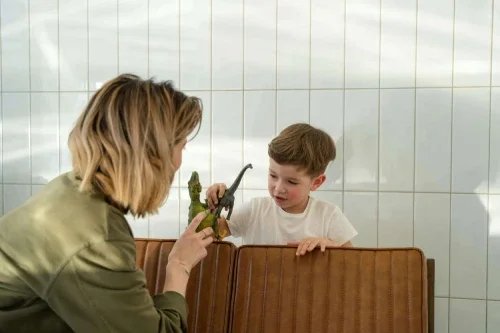
Child Therapy in Odessa, TX
Has your child been more reactive lately—lashing out, shutting down, or pushing people away? Do you find yourself wondering where their joy went, or why small things seem to set off intense emotions? Are friendships, focus, or schoolwork becoming more of a struggle than they used to be?
Perhaps you’re considering therapy to help your child make sense of those big, overwhelming feelings like sadness, fear, anger, or frustration. Or maybe you’re starting to think their defiant behavior is actually a signal that something deeper is going on—and you’re hoping a child therapist can help you gain some clarity.
Do You Worry About Your Child’s Behavior Or Emotional Health?
How Emotional Challenges Can Disrupt A Child’s Daily Life
Sometimes these challenges are more than just a phase. Anxiety in children, depression, ADHD, or the impact of grief or trauma can shape how a child sees themselves and interacts with the world. Academic setbacks may pile up. Friendships may fade. A family shift like divorce, relocation, or loss can shake a child’s sense of safety. Even social struggles or bullying can leave them feeling isolated and unsure of where they fit in.
Without a safe place to explore what’s going on inside, kids often bottle things up—or let them explode. Therapy for children creates space for expressing big emotions, reflecting on motivations behind behaviors, and developing new coping tools that help them move forward with greater confidence.
No matter what your child is facing, help is available. At Balance Counseling Center, we offer compassionate, child-focused therapy that helps kids navigate their emotions, build confidence, and develop the resilience they need to thrive.
Reach out today!
Understanding What’s Normal—And What May Be A Sign Your Child Needs Support
It’s not always easy to tell the difference between typical childhood behaviors and signs of a deeper emotional concern. Many parents wonder whether tantrums, frequent meltdowns, or a lack of coping skills are just part of growing up—or indicators of a bigger challenge like a developmental delay or depression in children. When emotions feel too big or self-soothing feels impossible, children may act out, withdraw, or show signs of emotional distress that are hard to interpret.
Children Endure Pressure To Cope Without Having The Right Tools
Other symptoms—such as clinginess, worry in unfamiliar settings, or unexplained physical complaints like stomachaches—may point to anxiety. Separation anxiety, social struggles, and difficulty connecting with peers are especially common starting around age four and can sometimes mask what’s really going on underneath. Without proper tools and a safe space to express their feelings, kids may internalize their pain or act out in ways that don’t make sense until you zoom out and see the full picture.
Child therapy can give your child the tools and support they need to feel understood, safe, and more in control. At Balance Counseling Center, our experienced child therapists and play therapy specialists help children learn how to regulate emotions, express themselves more clearly, and navigate life’s ups and downs with greater confidence and resilience.
A Supportive, Child-Led Therapeutic Process
Because kids are often corrected, directed, or evaluated throughout their daily lives, we believe the counseling space should feel different—more open, safe, and child-centered. At Balance Counseling, child therapy begins with a parent-only intake session where you can share concerns, history, and treatment goals. From there, your child will meet with a skilled child therapist who will focus on building trust through connection and creativity.
Sessions are tailored to each child’s emotional and developmental needs. Depending on the child, we may incorporate techniques, such as play-based exploration, expressive arts, or other developmentally appropriate methods, to support healing and growth. These tools often lead to behavioral improvements at home, in school, and in peer relationships. For many kids, therapy becomes a welcomed space—one where they feel seen and supported, not judged or misunderstood.
Support For The Whole Family System
We also understand that the most effective therapy for children doesn’t happen in a vacuum. When parents feel overwhelmed, unsupported, or triggered by past experiences, it can affect the entire household dynamic.
That’s why Balance Counseling Center offers additional support for caregivers—providing separate counseling to reduce stress and explore how unresolved emotions may be impacting parenting. Whether your child is working with one counselor and you’re seeing another, or you’re simply looking to better understand your role, we’re here for the entire family.
Let Us Help You Find Balance
Childhood can be confusing, overwhelming, and even painful at times, but with the right guidance, children can learn to make sense of their experiences and feel empowered to grow. Therapy at Balance Counseling Center offers a path toward healing—and a brighter, more balanced future.
Amy Garman, LPCS, RPT, founder of Balance Counseling Center, has spent more than 20 years helping children and families grow stronger through compassionate, developmentally informed care. She continues to be inspired by how deeply children can heal when given the right space, tools, and support.
How Child Therapy Helps Children Explore Emotions, Heal, And Grow
Children don’t always have the words to explain what they’re going through—but with child therapy, they can find meaningful ways to express emotions and start to heal. Play, creativity, and the therapeutic relationship itself help kids process their experiences indirectly, allowing their inner world to emerge in healthy ways.
Even when emotions remain unspoken, therapy for children often leads to noticeable improvements in behavior, mood, and overall well-being. At Balance Counseling Center, we’ve seen young clients begin to feel more resilient and emotionally grounded—sometimes within just a few sessions.
You May Still Have Questions About Child Therapy
I’m not sure how play or creativity will help my child behave or feel better.
It may look like "just play," but play therapy is actually one of the most effective ways children communicate. While talk therapy works well for adults, children often don’t have the vocabulary or self-awareness to express what they’re feeling. Through symbolic play, art, and creativity, child therapy helps kids share their inner experiences in a language they naturally understand.
In addition, the warm, nonjudgmental atmosphere of counseling gives kids a rare chance to feel safe, respected, and in control. When children aren't constantly being evaluated or corrected, they’re more likely to feel confident and engaged in the process of healing.
Can therapy help my child build self-esteem?
Absolutely. If your child struggles with low confidence or self-worth, child therapy can help them build a stronger foundation from the inside out. Working with a trained child counselor in a safe, supportive setting allows kids to recognize their strengths, understand their emotions, and gain confidence as they practice new coping skills.
Many children leave sessions feeling more capable, more in control, and more connected to themselves and others.
I'm having a hard time with parenting—do you work with parents too?
Yes. While we specialize in therapy for children, Balance Counseling Center also offers support for parents and caregivers. Parenting stress is real, and we understand that it can be hard to know what to do when your child is struggling. Our counselors can help you develop skills to regulate your own emotions, better understand your child’s needs, and respond with patience and clarity.
Whether you're seeking therapy for your child, yourself, or both, we’re here to support your entire family.
We’re Ready To Help You Support Your Child’s Emotional Growth
If you’re worried about anxiety, depression, or behavioral challenges in your child, our experienced team of Registered Play Therapists and child counselors is here to help. Contact Balance Counseling Center today to learn more about how child therapy can support your little one’s emotional health and happiness.






